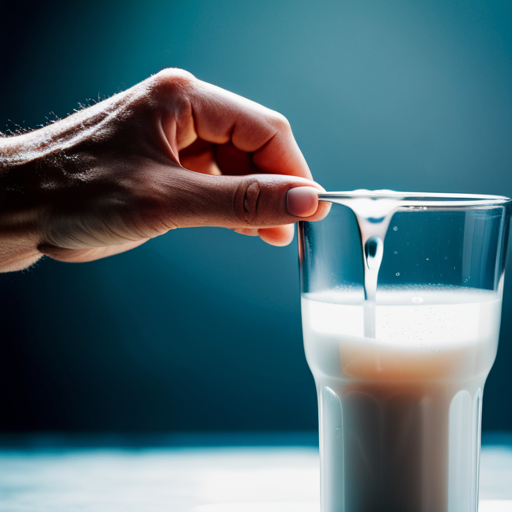Are you experiencing persistent itchiness on your skin? Hard water might be the culprit. In fact, 85% of American households have hard water, which contains minerals that can damage your skin’s natural oils, clog pores, and increase exposure to infections.
Fortunately, there are practical solutions that can help soothe your skin and alleviate the symptoms of hard water. In this article, you will learn about the effects of hard water on your skin and the potential problems it can cause. You will also discover effective solutions to combat the itchiness and discomfort caused by hard water.
By implementing these tips, you can enjoy soft and healthy skin even in areas with hard water. So, let’s dive in and discover how to achieve soft skin despite hard water.
Key Takeaways
– Hard water affects 85% of American households and can make skin itch and worsen conditions like eczema and psoriasis.
– Minerals in hard water can clog pores, make moisturizing difficult, and cause damage to the skin’s natural oils.
– Using a water softener, reducing shower time and using better quality soap-free cleansers, and regular moisturizing can help alleviate the effects of hard water on skin.
– Soft water is less likely to cause itching and dry skin, and installing a water softener can help cut the problem at its source.
Effects on Skin
If you have hard water, it can make your skin itch and worsen conditions like eczema and psoriasis. This is because the minerals present in hard water, such as magnesium, can clog your pores and make moisturizing difficult. Soap scum, which is caused by hard water, can also damage your skin and trap natural oils, leaving your skin feeling dry and irritated.
To minimize exposure to hard water and soothe your itching skin, it’s essential to establish a skin care routine that includes regular moisturizing. Soft water is less likely to cause itching and dry skin, so consider installing a water softener to cut the problem at its source.
In addition, reducing your shower time and using better quality soap-free cleansers can help. Remember that moisturizing is fundamental in keeping itchy skin at bay, so make sure to apply lotion or cream to your skin after every shower or bath.
Potential Problems
You may experience discomfort and irritation due to the mineral buildup in your household’s water supply. Hard water can cause skin reactions, dandruff, and increased sensitivity. It can also damage bathroom appliances, leading to skin diseases like eczema.
To prevent damage and protect your skin, here are some tips for avoiding hard water irritation:
– Use a water softener to remove hard minerals and replace them with sodium ions. This will make your water softer and less likely to cause itching and dry skin.
– Be mindful of your shower time and use better quality soap-free cleansers to reduce the amount of hard water on your skin.
– Regularly moisturize your skin to cancel out the effects of hard minerals. This will help keep your skin hydrated and prevent it from becoming dry and irritated.
Understanding skin pH is also important in protecting your skin from hard water irritation. Hard water’s alkalinity can increase skin’s pH, causing irritation and exposure to infections. To avoid this, use skin care products that are pH-balanced and gentle on your skin.
By following these tips, you can prevent damage and protect your skin from the harmful effects of hard water.
Solutions
Consider installing a water softener to eliminate mineral buildup and reduce the potential for discomfort and irritation caused by your household’s water supply. Water softeners work by replacing hard minerals like calcium and magnesium with sodium ions, which makes the water gentler on your skin.
You can install a water softener in your home, or you can use a portable unit that attaches to your showerhead. To install a water softener, you’ll need to determine the size of your household and the level of hardness in your water.
You can purchase a water testing kit at your local hardware store or contact a professional to test your water. Once you know the level of hardness, you can choose the right water softener for your needs.
Benefits of soft water include smoother, softer skin, reduced soap scum, and longer-lasting appliances. With a little effort and investment, you can enjoy all the benefits of soft water and eliminate the discomfort and irritation caused by hard water.
Conclusion
Congratulations! You’re now equipped with the knowledge on how to soothe the itchiness caused by hard water. As mentioned, hard water can clog your pores, damage your skin’s natural oils, and increase your exposure to infections. This can lead to eczema, psoriasis, blemishes, flaky skin, and increased sensitivity.
However, there are practical solutions that you can do to alleviate these symptoms. One of the easiest solutions is to use a water softener. This will help reduce the minerals in your water that can cause skin irritation. Additionally, reducing your shower time and regularly moisturizing can also help keep your skin soft and healthy.
Remember, taking care of your skin is not just about looking good, it’s about feeling good too! So, follow these tips and enjoy the benefits of soft and healthy skin even in areas with hard water.
